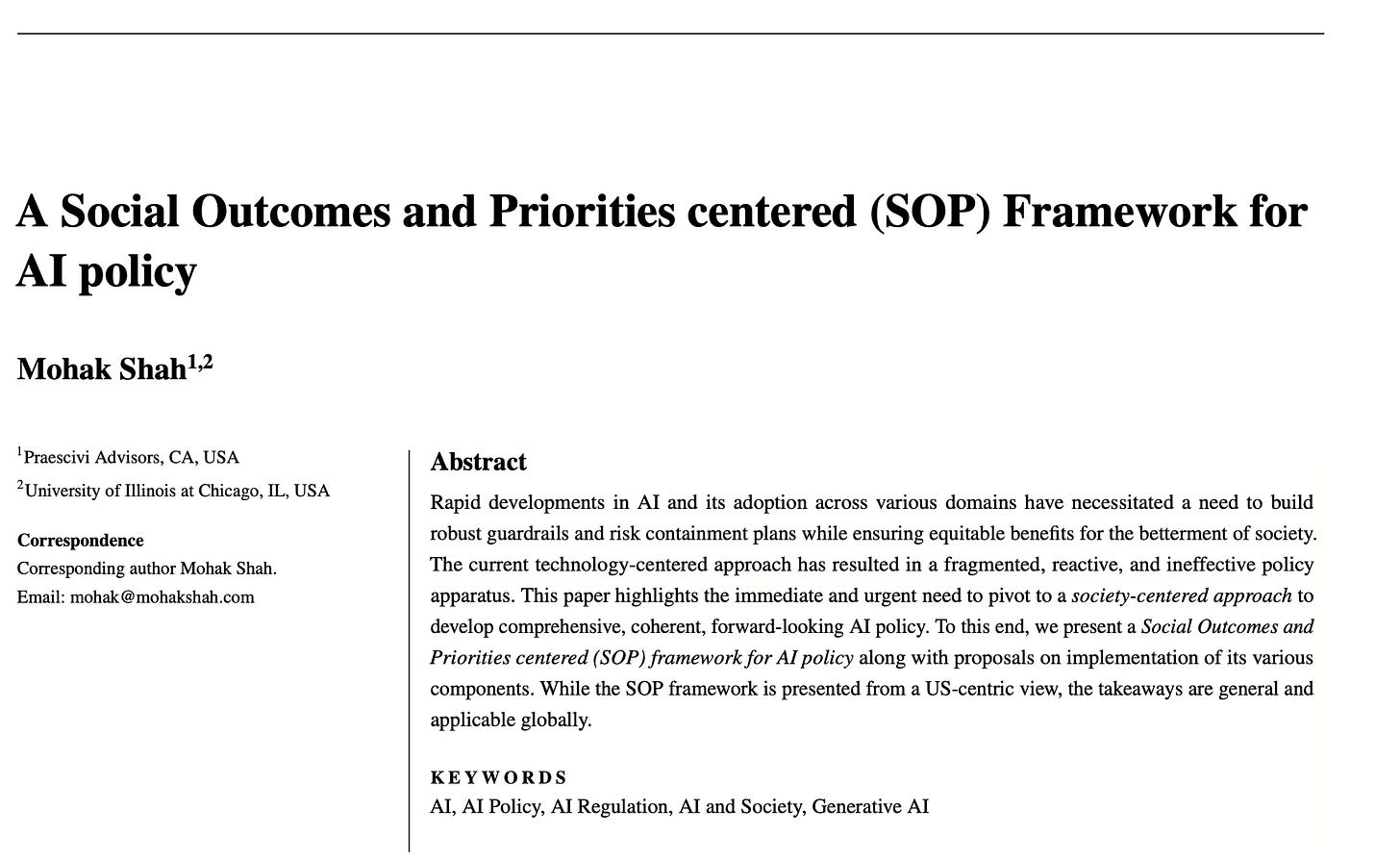As #AI continues to evolve, policy discussions often stay narrowly focused on technology itself -- data privacy, governance, accessibility, interpretability, and responsible development. But is this the right approach?
We need to pivot towards social outcomes and priorities, ensuring that our AI policy decisions reflect real-world needs and challenges. This shift starts with an anchor framework—one that is not just ambitious but realistically implementable in the current policy landscape.
With the ongoing budget reconciliation discussions in Congress (the One Big Beautiful Bill Act, #OBBB or #OBBBA), there’s rising uncertainty in the AI community—academics, businesses, investors, and societal stakeholders—about how AI policy and regulation will be affected. Will the outcome impact states' ability to shape AI laws? Can federal policy fill the gap? Are we ready for the shift that AI will bring?
Regardless of where these discussions land, we must seize this moment to reshape and expand the conversation on AI policy. One of the biggest challenges remains: a lack of a unifying framework that can reconcile scattered policy efforts.
🔹The mistake? Continuing to prioritize technology-centered policy instead of a social outcomes-driven approach.
🔹 The solution? A structured framework that aligns AI governance with agreed-upon societal priorities—both present and future.
🔹 The need? A comprehensive policy implementation strategy that ensures AI serves societal progress in a meaningful, measurable way.
I’ve previously outlined a Social Outcomes and Priorities (SOP) framework—detailing how this approach could take shape within the U.S. policy landscape:
I’m sharing it here and would love to connect with others working on AI policy globally! The arxiv link is here.
Let’s rethink AI policy together. 🌍✨💬 Do you agree that the AI policy approach should shift its focus from technology-first to outcome-first? Drop your thoughts below!







Thank you for sharing!